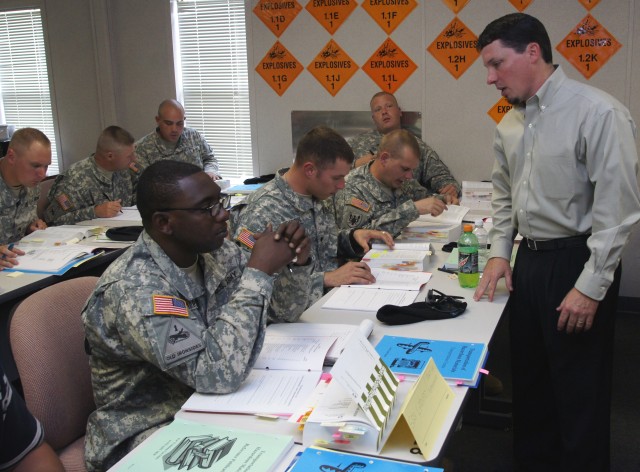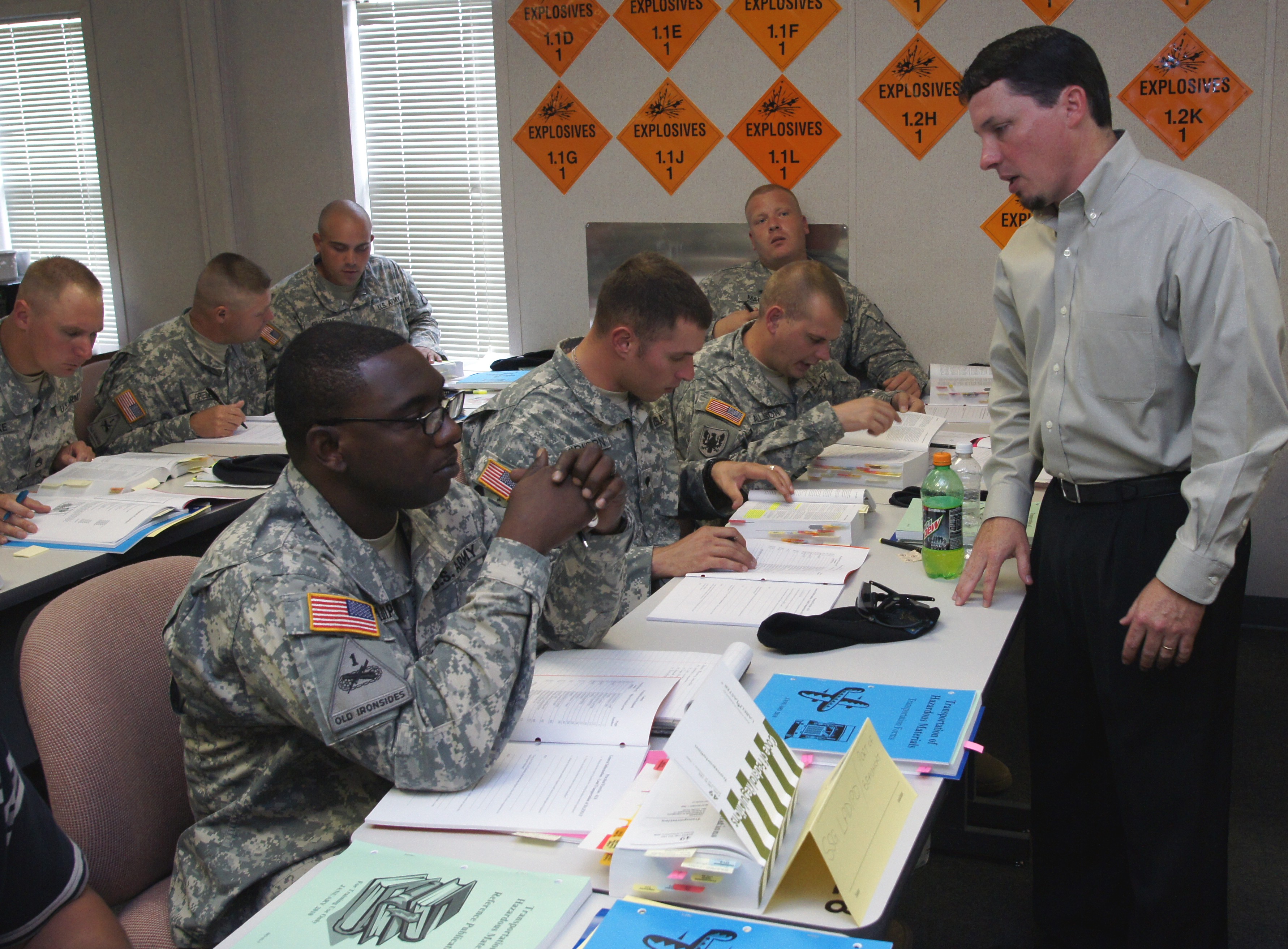MCALESTER,Okla.-- For the past four and a half years the U.S. Army Defense Ammunition Center (DAC) located in McAlester, OK, has supported U.S. Soldiers by providing pertinent training in theater.
Since September 2006, DAC has presented 67 classes of the 80 hour AMMO-62, Technical Transportation of Hazardous Materials (HAZMAT) course in Southwest Asia. These classes have provided necessary certification training to approximately 3000 soldiers.
"Classes have been conducted in Iraq, Afghanistan, Kuwait, Bahrain, and Qatar," said Mr. Charles Schulz, Chief of DAC's HAZMAT & Packaging Training Division. "The support we have provided over these past four years has been critical in the success of Soldiers' safely transporting HAZMAT between and within theater," explained Schulz.
On a rotational basis, two DAC instructors are deployed to theater for three months to present this certification training. This two week instructor-led course provides personnel with detailed technical information pertaining to the shipment of hazardous materials by all modes of transportation. It additionally satisfies the mandatory training requirement for soldiers who are responsible for certifying hazardous materials.
"Our goal for the course is to assure Soldiers transport HAZMAT in a safe manner and that all regulatory directives are adhered to," said James Dupree, one of DAC's HAZMAT Instructors. "My role as an instructor is to take those technical regulations and convey the information in a manner which assures soldiers know exactly what's expected of them to do their job."
Future Ammo-62 course schedules can be accessed through the DAC Training Directorate webpage at http://ammo.okstate.edu/. Admission to a HAZMAT course is by nomination from the prospective student's command and must be made through the Army Training Requirements and Resources System (ATRRS). Students who complete Ammo-62 may be able to receive college-level credit as recommended by the American Council on Education (ACE).


Social Sharing